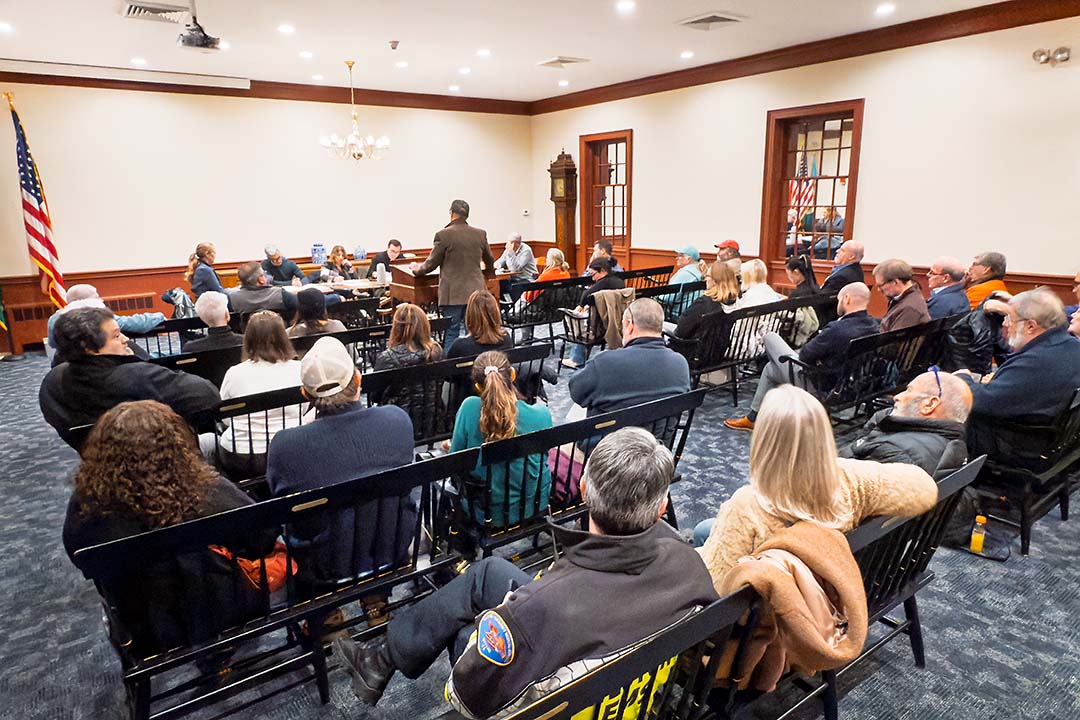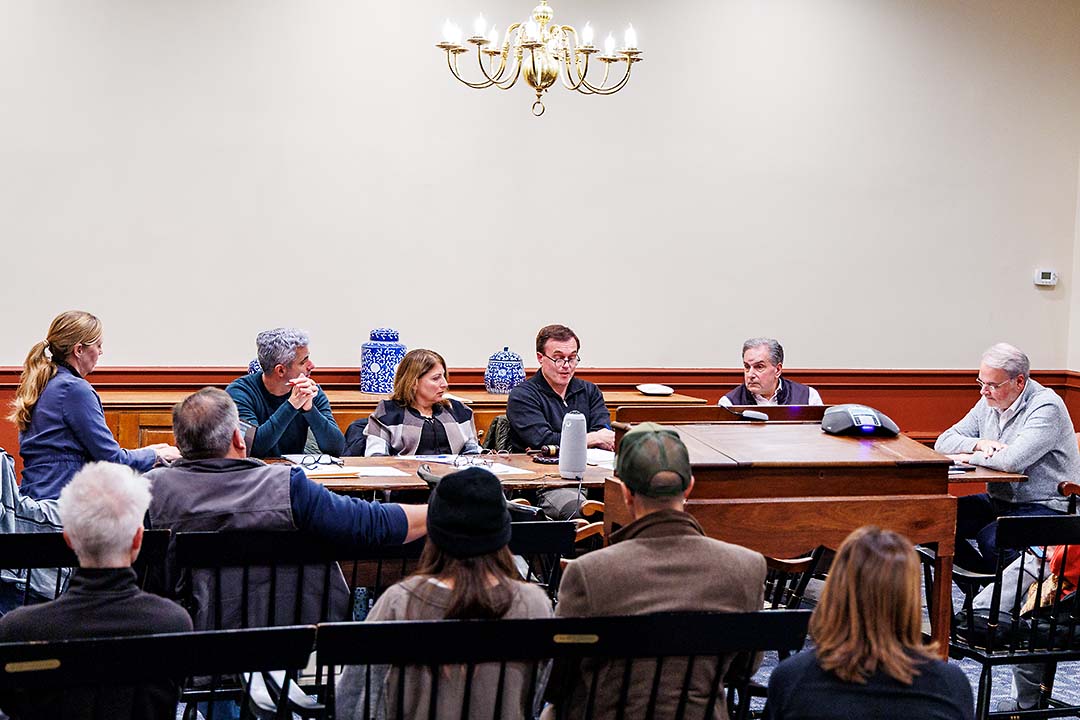Views Aired on Charter Revisions

Weston Today photos
The commission tasked with reviewing the Town Charter and recommending revisions heard public comment on November 20, five days before members are scheduled to commence work.
So far, the Charter Revision Commission has only met to elect officers. The hearing on the 20th was a statutory requirement to take public input before getting down to substantive business. Another hearing must be held before draft recommendations are submitted to the Board of Selectmen next spring.

The commission is free to recommend whatever Charter revisions it sees fit, but must first consider eight topics assigned by the selectmen. One of those, always bound to get attention, is whether to recommend changes to the town’s budget process. The Annual Town Budget Meeting (ATBM) was the subject of most comments at the hearing.
The commission also heard views on whether the position of First Selectman should be a full-time job with a four-year term. It is unclear where that came from, as it isn’t among the topics assigned. The current Charter is silent on whether the job is full time or part time.
Comments about topics that were assigned included whether to change the size of some Town boards. One came from a current member of the Police Commission (Frank Ferrara), who called for shrinking it. Another came from a current Board of Education member (Peter Gordon), who suggested expanding that board.
Other comments addressed whether to change Charter rules about representation by minority political parties, an assigned topic. More on that in a minute.
The ATBM
About twice as many speakers favored eliminating the Annual Town Budget Meeting over those wanting to preserve it. Advocates of keeping it argue that the ATBM is New England-style democracy at its best, with discussion, debate, motions and votes. The other side argues that it isn’t democracy at all, or at least not enough of it, given the rules.
The current Charter only allows votes at the ATBM that reduce budgets recommended by the Board of Finance, not increase them. And, adding anything not included in the recommendations is forbidden.
So, if you want to increase spending on, say, school security (as one participant wanted this year), you’re out of luck.
The objection is that this gives an unfair advantage to those wanting cuts and stifles those wanting additions or spending on other priorities.
So far, we haven’t been able to find a similar rule in another Connecticut municipality. Many towns have discuss-and-debate meetings but leave the voting to a referendum.
In Weston’s referendum, voters either approve or reject budgets that come out of the ATBM, not those that go in. By the end, the recommendations may have survived the meeting intact, but as few as 66 citizens may have cut them, given the quorum of 130.
Towns with a charter (like two thirds of all in the state) can adopt whatever budget approval process they want. Assuming the Charter Revision Commission makes a recommendation and the selectmen concur, voters will decide whether to change Weston’s process.
Minority party representation
The current Charter says only a bare majority of board, commission, or committee members can belong to the same political party. This is regardless of the proportion of party affiliations in town. It applies to both elected and appointed boards.
State law is a bit more permissive. On, for example, a seven-member board, by statute up to five could be from one party, but no more.
At present, roughly 40 percent of Weston voters are registered Democrats, more than twice the 18 percent registered as Republican. Republicans are also outnumbered more than two to one by Unaffiliateds.
The Charter Revision Commission’s assignment includes considering whether it makes sense to abandon the bare majority rule and go with the statutory limits. Members are also free to recommend some other approach, or no change at all.
The task
In summary, the Charter Revision Commission is charged with considering at least these topics:
- Enhancements to existing provisions regarding the Town’s financial transparency, budgeting, expenditures, and accounting.
- An evaluation of public engagement with the budget process and how it might be improved.
- Consideration of whether the Charter should more closely align with State law regarding how many members of one political party can serve on a Town board, commission, or committee. (Current Charter provisions are more restrictive than what the statutes allow.)
- An evaluation of the size of Town boards and length of member terms.
- Recommendations for aligning the Charter with State law regarding appointed Town positions and participation in a collective bargaining agreement.
- Revising existing Charter language that is inconsistent, inaccurate, unnecessary, or redundant.
- Considering whether a provision should be added to require Charter review every ten years.
